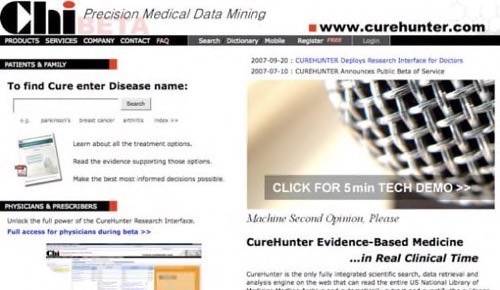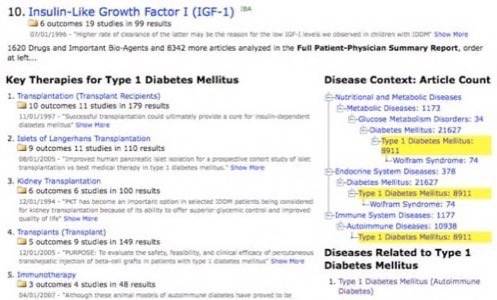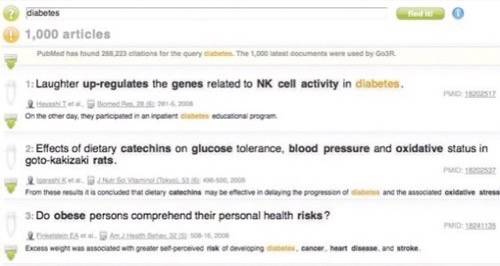One of the big trends in 2008 has been the emergence of what I call Semantic Apps – a kind of ‘Web 2.0 Meets Semantic Web‘ app typified by startups like Twine, Hakia, Quintura, Powerset and others. Another growing trend is health 2.0, web-based health apps and services. What’s interesting is that those two trends are crossing over, with semantic health search engines beginning to make an impact.

Two such apps to cross our desk lately were 1) CureHunter, which claims to be able to find cures for diseases using semantic technologies; and 2) Go3R, an app that claims to provide information transparency “for the prevention of animal testing”.
Health is an area where Semantic technologies can be put to great use, due to the overwhelming amount of data in the healthcare industry and the fact that it’s largely inaccessible to the general public (despite most of it being our data).
CureHunter – Can it Really Cure Diseases?
CureHunter is an example of the new semantically-charged health search engines popping up. As the name suggests, it is a web service that aims to find cures for diseases. Judge Schonfeld is the CEO and Chief Scientist of CureHunter and he described it to us in an email as a “Medical Data Mining engine system that uses an intelligent semantic processor linked to a network graph theory module to read the scientific literature (entire NLM archive 1949-2008 >) and compute new cures for human diseases completely autonomously.” That’s a mouthful, but I’ve highlighted the key points: it uses semantic processing, network graphs and most interestingly claims to “compute new cures” automatically.

The following graphic (excerpted) illustrates CureHunter’s approach. Essentially it tries to analyse health research data and compute cures:
Click here for full image, with extra detail

CureHunter is pretty complex, but I did some tests for diabetes type 1 to see if I could find a “cure”. The results were overwhelming, in an ‘info overload’ kind of way:

It outlined some interesting “cures”, but much of the information was not something patients would understand. It seems like a great resource for doctors and physicians though. So to answer the question in the subheader, can CureHunter really cure diseases? Probably only if you’re a doctor or physician who knows how to interpret the wealth of data that CureHunter serves up.
Go3R – Prevents or Amplifies Animal Testing?
The idea of having a health database that includes animal testing results isn’t something most people would find very appealing. However Go3R, developed in four months by a company from Germany called Transinsight, claims to be a “knowledge-based search engine for alternative methods to animal experiments.” (emphasis ours) The site aims to enable scientists to “take advantage of the benefits of semantic searches for the area of alternative methods in accordance with the 3Rs principle [Replacement, Reduction and Refinement].” Transinsight is already known in the web 2.0 world for GoPubMed, a health search engine that AltSearchEngines has covered before.
You could view Go3R in two ways. The first is the version Transinsight pushes in its press release: that this app makes it easier to find alternatives to animal testing. However the second point of view is that this is a big database that includes animal experiment results, and so it might be seen to amplify the practice of animal testing. For example I searched for “diabetes” and the number 2 result was a test on rats:

Whether you see this as further exploitation of animal testing, or (as Transinsight says) an app that will “lead to a significant reduction of animal experiments”, it is an interesting use of semantic technologies(!).
Conclusion
Health search engines are nothing new – indeed both Google and Microsoft have made important announcements in this domain over the past year. In October 2007 Microsoft unveiled HealthVault, a consumer health and search site. In February this year Google announced a pilot program of their health records application called Google Health. A week later, Microsoft acquired Medstory – a vertical search engine for health information. There is also a lot of interest among startups – see our report from the Health 2.0 Conference in March and another report from a healthcare panel at SXSW later that month. Also our network blog AltSearchEngines continuously covers health search engines.
But I’m liking this latest trend for semantically-powered health search engines. If ever there was a compelling need for Semantic Apps to help users make sense of and organize data, it’s in health. CureHunter and Go3R are two apps to look out for.

















